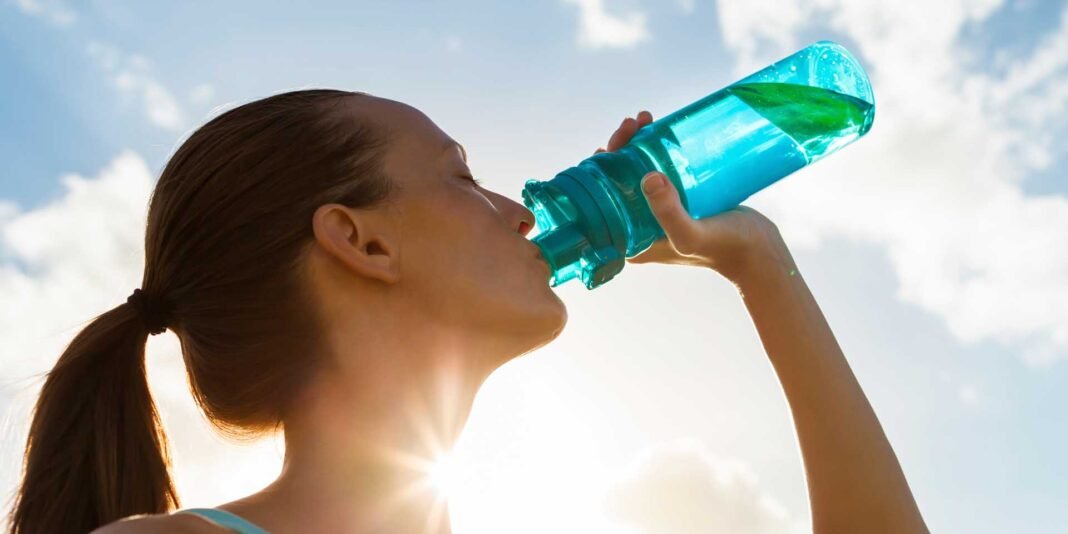Summer, with its scorching temperatures and relentless sun, often makes us feel like we’re living inside an oven. In such conditions, staying hydrated becomes not just a necessity but a vital component of overall well-being. Dehydration can lead to a range of health issues, including heatstroke, fatigue, and impaired cognitive function.
Drink Plenty of Water
Water is the most fundamental and effective way to stay hydrated. Aim to consume at least 8-10 glasses of water a day, but during the summer, you may need more due to increased sweating. Keep a reusable water bottle with you at all times to remind yourself to drink regularly. Infusing your water with slices of citrus fruits or cucumber can add a refreshing twist and encourage you to drink more.
Stay Ahead of Thirst
Thirst is your body’s way of telling you it’s already somewhat dehydrated. Instead of waiting until you feel parched, take proactive steps to stay ahead of thirst. Set regular reminders to sip water, especially if you’re engaged in outdoor activities. Even mild dehydration can affect your mood and cognitive abilities, so don’t underestimate the importance of preemptive hydration.
Eat Hydrating Foods
Fruits and vegetables are packed with water and can significantly contribute to your daily hydration needs. Watermelon, cucumbers, oranges, and strawberries are excellent choices. They not only provide hydration but also essential vitamins and minerals that help your body cope with the heat. Consider making salads, smoothies, or snacking on these hydrating foods throughout the day.
Limit Dehydrating Beverages
While it’s tempting to indulge in sugary sodas, caffeinated beverages, and alcohol during the summer, these drinks can actually dehydrate you. Caffeine and alcohol are diuretics, meaning they can increase urination, leading to fluid loss. If you do enjoy these beverages, make sure to balance them with extra water intake to offset the potential dehydration.
Electrolyte Balance
Sweating is your body’s way of cooling down, but it also leads to the loss of essential electrolytes like sodium and potassium. To maintain proper electrolyte balance, consider consuming sports drinks or electrolyte-infused water during intense physical activities. However, for everyday hydration, plain water is usually sufficient.
Create a Hydration Schedule
Establishing a routine can help you remember to drink enough water. Create a hydration schedule that includes specific times for drinking water. For example, have a glass when you wake up, before meals, and before bedtime. This structured approach can ensure you maintain consistent hydration levels throughout the day.
Invest in a Reusable Water Bottle
Carrying a reusable water bottle is not only environmentally friendly but also incredibly convenient. Opt for a bottle with volume markings to track your water intake. Insulated bottles can keep your water cool for hours, making it more appealing to drink. Take your bottle with you wherever you go to ensure easy access to water throughout the day.
Know the Signs of Dehydration
Understanding the signs of dehydration is crucial for prompt intervention. Common symptoms include dark yellow urine, dry mouth, dizziness, fatigue, and headaches. If you experience any of these signs, it’s essential to hydrate immediately. In severe cases, dehydration can lead to heat exhaustion or heatstroke, which require immediate medical attention.
Use Cooling Methods
Incorporate cooling methods into your daily routine to beat the heat and reduce the risk of dehydration. Take cool showers or baths, use fans or air conditioning, and wear light, breathable clothing. These practices help lower your body temperature and minimize excessive sweating.
Conclusion
Staying hydrated during the scorching summer months is vital for your health and well-being. By drinking plenty of water, consuming hydrating foods, and being mindful of your body’s signals, you can keep dehydration at bay. Remember that prevention is key, so establish a hydration routine and pay attention to the signs of dehydration.

